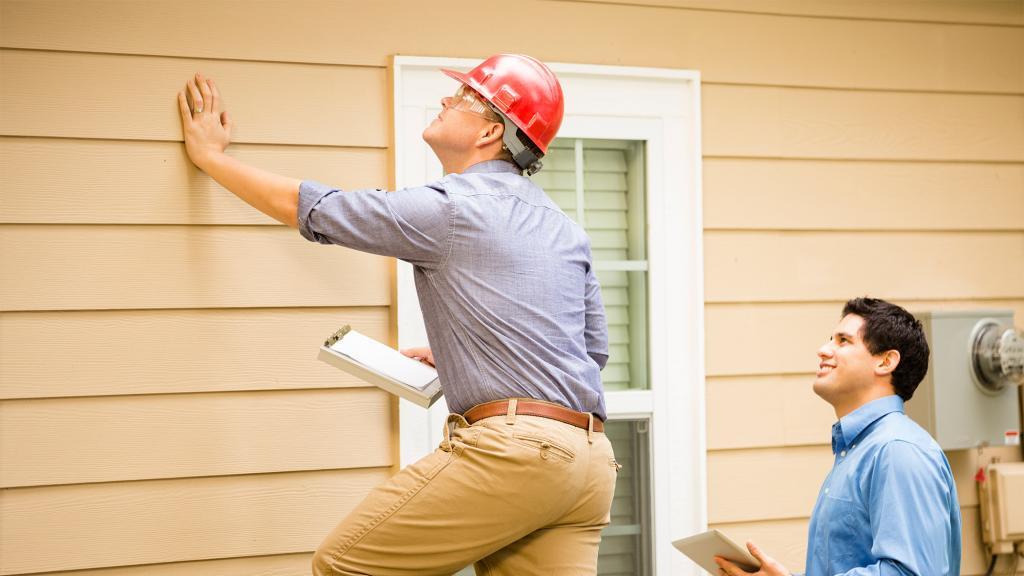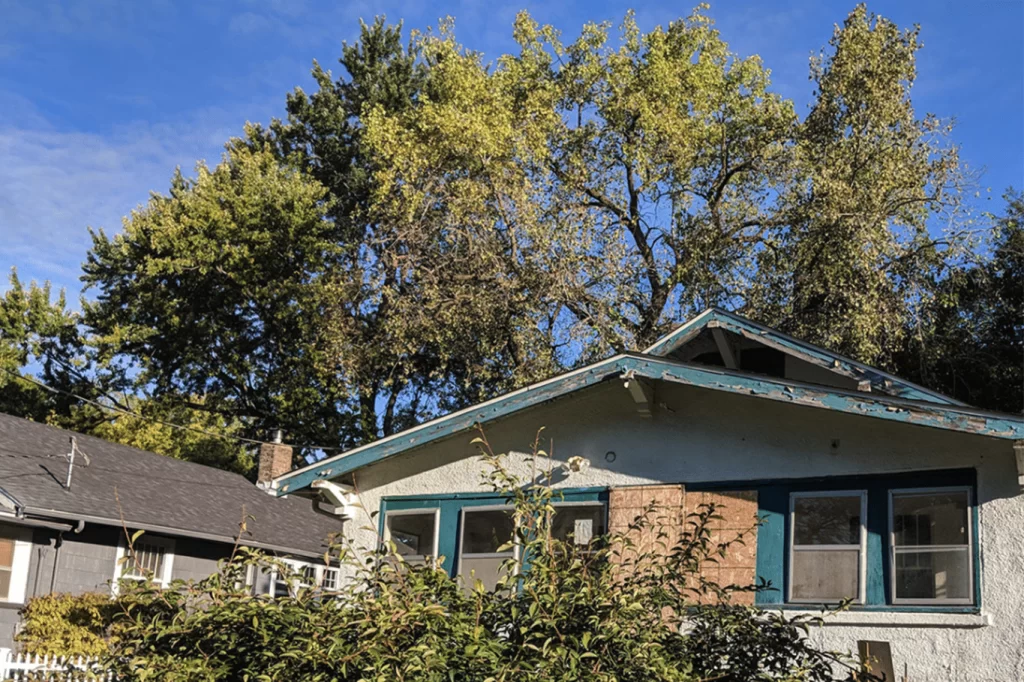Selling a house isn’t always straight sailing, especially when there’s a catch like code violations. Many homeowners in San Antonio and across Texas find themselves puzzled by what these violations mean for their sale prospects.
Imagine discovering that your property doesn’t line up with local building codes—sounds stressful, right? But here’s something you may not know: You can still sell your home, even if it’s waving red flags for code issues.
Receive a Fair & FREE No Pressure Cash Offer
Our article drops the heavy legal talk and spells out the must-know facts about selling your not-so-perfect Texas property. We’ll guide you through understanding code violations, revealing them the right way, and exploring all your selling options.
Plus, we’ve gathered some solid tips to help keep your sale on track despite those pesky violations.
Ready to turn problems into possibilities? Keep reading—we’ve got the blueprint to bring you peace of mind!
Quick Summary (If you’re in a rush!)
- Selling a house with code violations in Texas requires understanding and disclosing all known violations as per state laws, whether it’s about structural, electrical, plumbing, HVAC or fire safety issues.
- Homeowners have various options when selling a property with code violations in Texas, including repairing the violations, offering a credit or lowering the price, selling “as is,” or considering cash buyers to expedite the sale.
- It is crucial for homeowners to seek advice from legal and real estate professionals to navigate the process effectively while upholding their legal obligations and ensuring compliance with state laws.
Selling a House with Code Violations in Texas
When it comes to selling a house with code violations in Texas, it’s important to understand the law and your options.
Whether you choose to repair the violations, offer a credit, or sell “as is,” disclosure of violations is crucial.
Understanding the law
Selling a house in Texas means you must tell buyers about any code violations. It’s the law. If you don’t, you could face big fines. Code violations include problems with how the house is built or fixed up to keep people safe.
You have to fix serious safety issues before selling your home. For less severe problems, it might be okay to sell without fixing them first. But remember, either the person selling or buying will need to make sure the house meets all codes after the sale happens.
This makes sure that everything in the house is safe and follows local rules.
Selling a home in places like Dallas or San Antonio can be tricky if there are code issues. You should talk to someone who knows a lot about real estate and laws in Texas so you make good choices when selling your property with violations.
Receive a Fair & FREE No Pressure Cash Offer
Options for selling
Selling a house with code violations in Texas offers different options for homeowners. Understanding these options is crucial when deciding how to proceed.
- Disclose violations: Texas law requires homeowners to disclose any known code violations when selling a house, protecting both the buyer and seller’s interests.
- Repair violations: Addressing and fixing the code violations before putting the house on the market can enhance its appeal to potential buyers and mitigate any legal issues.
- Offer a credit or lower price: Providing a credit at closing or reducing the sale price can offset the cost of addressing the violations for buyers.
- Sell “as is”: Selling the property “as is” means that the buyer assumes responsibility for addressing any code violations after purchase, while allowing sellers to avoid costly repairs upfront.
- Consider selling to a cash buyer: Cash buyers may be more willing to purchase a property with code violations, providing an alternative for sellers who want to expedite the sale without making repairs.
Disclosing violations
When selling a house with code violations in Texas, it is crucial to disclose all known violations to potential buyers as required by law. Failure to do so can lead to serious penalties for the seller.
Whether it’s minor or major violations, ensuring full transparency about any existing code infractions is a legal obligation that should be approached with utmost care and attention.
Understanding the specific regulations and seeking advice from real estate professionals will provide clarity on the disclosure process and help navigate through the complexities of selling a property with code violations in Texas.
By being transparent about these issues, homeowners can uphold their legal obligations and establish trust with potential buyers throughout the selling process.

Common Types of Code Violations
Structural violations, electrical violations, plumbing violations, HVAC violations, and fire safety violations are some common types of code violations that homeowners in Texas may encounter when selling their properties.
Understanding these potential issues can help sellers navigate the process more effectively.
Structural violations
Selling a house with structural violations in Texas requires careful consideration. Structural violations refer to issues with the building’s foundation, walls, or roof that affect its stability and safety.
These violations pose significant risks and must be addressed before selling the property. Failing to disclose such violations can lead to legal consequences for the seller, highlighting the importance of understanding these concerns when selling a property in San Antonio.
Now let’s explore another crucial aspect related to code violations: electrical violations.
Receive a Fair & FREE No Pressure Cash Offer
Electrical violations
When it comes to selling a house with code violations in Texas, electrical violations are a crucial aspect that needs attention. As per the law, homeowners must disclose any known electrical violations to potential buyers.
Failure to address these violations can result in legal consequences, and sellers could be held liable for any safety hazards related to electrical issues. Before putting the property on the market, it’s essential to have a thorough understanding of the specific electrical code violations and consult with experts or professionals who can provide guidance on how to proceed.
In addition, minor code violations like improper wiring or outdated fixtures may not necessarily need immediate repairs before selling; however, significant safety concerns such as faulty wiring or overloaded circuits should be addressed promptly according to state and local laws.
Plumbing violations
Plumbing violations in a house can include issues such as leaky pipes, improper drainage, or faulty fixtures. When selling a house with plumbing violations in Texas, it is important to address these issues and disclose them to potential buyers.
According to state laws, sellers are obligated to reveal any known plumbing violations, and failure to do so could lead to legal consequences.
It’s essential for homeowners in San Antonio, Texas, to understand the specific plumbing code violations and seek advice from experts before putting their property on the market.
Moving on to “HVAC violations” – let’s discuss how these can impact selling a house in Texas.
HVAC violations
When addressing code violations in a house, it’s important to also consider HVAC violations. These violations typically relate to issues with the heating, ventilation, and air conditioning systems within the property.
It’s crucial for homeowners in San Antonio, Texas to understand that HVAC violations can impact the safety and comfort of potential buyers or tenants. Some common HVAC violations may include malfunctioning heating systems, inadequate ventilation, or faulty air conditioning units.
Addressing these issues is essential when selling a property, as failure to do so could result in legal ramifications and hinder the sale process.
It’s important for homeowners and landlords in San Antonio, Texas to be aware of their responsibility to disclose any known HVAC violations when selling a property. Failing to address these issues or disclose them could lead to significant penalties under Texas real estate regulations.
Receive a Fair & FREE No Pressure Cash Offer
Fire safety violations
When it comes to fire safety violations, homeowners should pay attention to issues such as faulty wiring or inadequate smoke detectors. These violations can pose serious risks and must be addressed before selling a house in Texas.
Disclosing these violations is crucial, as failing to do so can lead to legal consequences for the seller.
Selling a property with fire safety violations requires thorough inspection and potential repairs to ensure compliance with state laws and regulations.
It’s important for homeowners in San Antonio, Texas to understand their legal obligations and seek professional guidance when dealing with fire safety violations in a property they intend to sell.

How to Sell a House with Code Violations
Repairing violations, offering a credit or lowering the price, selling “as is,” and selling to a cash buyer are some options for selling a house with code violations in Texas.
Repairing violations
To prepare your house for sale in Texas, you may need to fix the code violations. Safety concerns, like faulty electrical wiring or structural damage, must be addressed according to state or local laws.
Sellers should carefully review the specific violations and seek advice from a real estate professional to understand the best course of action.
Understanding what needs to be repaired can help you navigate the process effectively and make informed decisions about selling a house with code violations in Texas.
If there are code violations on your property, it is crucial to address them before putting it on the market. Failure to disclose known violations could result in penalties and legal issues for sellers.
Receive a Fair & FREE No Pressure Cash Offer
Offering a credit or lowering price
If you decide to sell a house with code violations in Texas, offering a credit or lowering the price can be an option to consider. This could offset the cost of addressing violations for potential buyers.
However, it’s crucial to consult with legal and real estate professionals to navigate this process effectively, ensuring that all legal obligations are met and that the final decision aligns with state laws.
Failure to disclose violations could result in penalties, so it’s important to proceed carefully.
When selling a property as is while considering offering a credit or lowering the price due to code violations, understanding your legal obligations is essential. It’s also crucial to seek professional advice on how best to handle this situation in compliance with Texas property disclosure laws.
Selling “as is”
Selling a house “as is” means the property is offered for sale in its current condition, and the seller won’t make any repairs or improvements. In Texas, sellers must disclose all known defects to potential buyers when selling a house “as is.” This includes code violations.
If you choose to sell your home “as is,” be prepared to negotiate with potential buyers regarding the price and consider that some buyers may request additional inspections or evaluations.
Selling a house “as is” can be a good option if you are unable or unwilling to fund repairs for code violations. However, it’s crucial to understand the legal obligations and implications of this choice before proceeding.
Selling to a cash buyer
When facing code violations in Texas, selling to a cash buyer can be an attractive option for homeowners and landlords. Cash buyers are often willing to purchase properties as-is, without requiring extensive repairs or updates.
This can provide a faster and more straightforward selling process, especially when dealing with properties that have code violations. By choosing to sell to a cash buyer, sellers may avoid the need to invest time and money into addressing violations before putting the property on the market.
Additionally, working with a cash buyer can help expedite the sale of a property with code violations while fulfilling legal obligations regarding disclosure.
Receive a Fair & FREE No Pressure Cash Offer
Tips and Considerations for Selling with Code Violations
When selling a house with code violations in Texas, it’s important to consult with experts and understand local code requirements. Negotiating with potential buyers and knowing how to save the deal can also be crucial in successfully selling a property with violations.
Consulting with experts
When selling a house with code violations in Texas, consulting with experts is crucial. Real estate professionals and legal advisors can provide valuable insights into the specific laws and regulations governing property sales with violations.
They can help you understand your legal obligations, explore options for addressing the violations, and navigate negotiations with potential buyers. Seeking advice from these experts can ensure that you make informed decisions and take the necessary steps to sell your property legally and responsibly.
Understanding the implications of selling a house with code violations is essential for San Antonio Texas homeowners and landlords. Consulting with real estate professionals and legal advisors will equip you with the knowledge needed to address any violations effectively while complying with state or local laws.
Additional Real Estate Advice:
- Working With A Realtor To Sell Your House in San Antonio
- Tips For Selling Your House For Cash Quickly
- How To Sell My House Fast For Cash in San Antonio
- The Benefits of Selling a House Fast For Cash in San Antonio
- Can I Sell My House To My Friend Without a Realtor
- How Much Does it Cost To Sell a House in Texas
- Can I Sell My Parents Home With a Power of Attorney
- Can You Sell a House With Mold in Texas
- Can You Sell Your Home With Code Violations in Texas
Knowing local code requirements
Before selling a house with code violations in San Antonio, Texas, it’s crucial to understand the local code requirements. Familiarize yourself with the specific regulations and standards set by the city or county authorities.
Ensure you are aware of the safety codes, building regulations, and property maintenance requirements that apply to your area. Consulting with a real estate professional who is well-versed in local code requirements can provide valuable insights into what needs to be addressed before selling your property.
Understanding these local code requirements will help you navigate through the process effectively and make informed decisions about selling a house with violations.
When preparing to sell a house with code violations in San Antonio, Texas, homeowners must be mindful of their legal obligations concerning building codes. It is essential to review the relevant laws and regulations related to property code violations in Texas, particularly in San Antonio.
Seeking advice from legal professionals who specialize in real estate law can provide homeowners with the necessary information required for compliance when dealing with building code violations.
Negotiating with potential buyers
Before entering negotiations with potential buyers, it’s crucial to be well-versed in the specific code violations affecting your property. Understanding the implications and necessary actions can help you navigate discussions confidently.
When negotiating, ensure transparency about the violations, possible solutions, and any commitments regarding addressing these issues. This honest approach can build trust and facilitate productive discussions with potential buyers, ensuring a smoother process for everyone involved.
Remember that consulting with real estate professionals or legal experts on fair negotiation strategies and legal obligations is essential to protect your interests as a seller.
Receive a Fair & FREE No Pressure Cash Offer
How to save the deal
When negotiating with potential buyers, it’s essential to consider all options for resolving code violations. Offering a credit or lowering the price to accommodate the cost of repairs can make the deal more attractive.
Additionally, selling the property “as is” while being transparent about existing violations may also help in saving the deal. Seeking out cash buyers who are willing to purchase properties with violations can provide a swift resolution and prevent deals from falling through.
Understanding these strategies and being open to flexibility can help sellers navigate the challenges of selling a house with code violations effectively.
Remembering that navigating code violations when selling a house requires careful consideration and strategic planning is crucial for homeowners aiming to close successful deals in Texas.
Wrapping Up
Selling a house with code violations in Texas is possible but requires careful consideration and adherence to the law. Understanding your legal obligations and options for addressing violations is essential.
Practical strategies such as consulting experts, knowing local code requirements, and negotiating with potential buyers can simplify the process. By disclosing violations and exploring available solutions, homeowners can navigate this challenge effectively.
Seeking advice from a local attorney, real estate professionals, and pest control pros will provide valuable insights for making informed decisions about selling a house with code violations in Texas.
Can You Really Sell a House With Code Violations in Texas FAQs
1. Can you sell a house with code violations in Texas?
Yes, you can sell a house with code violations in Texas, but you must tell the buyer about the problems no matter what they are.
2. What happens if I don’t fix minor code violations before selling my home?
If you don’t fix minor code violations when selling your property, it could be harder to find a buyer. The new owner will need to bring the property up to date.
3. Do I have to let buyers know about house code violations when selling in Dallas?
In Dallas and all of Texas, sellers have legal duties to share information about any home code enforcement violations or safety issues with potential buyers.
4. Will someone buying my house be able to get a mortgage if there are property code violations?
Getting a mortgage on a house with building codes might not be easy for the buyer. Banks often want houses that follow all rules before lending money.
5. How do I check for possible property code violations before selling my house in Texas?
Before putting your house up for sale, check for any Texas property violation by getting an inspection or asking local housing authorities who handle building and safety laws.
If you’re ready to sell your San Antonio home for cash quickly, give us call at (210) 570-4984 or fill out the short online form.
Our team of savvy real estate problem-solvers is here to guide you through our fast home buying process and give you a fair offer on your home!
